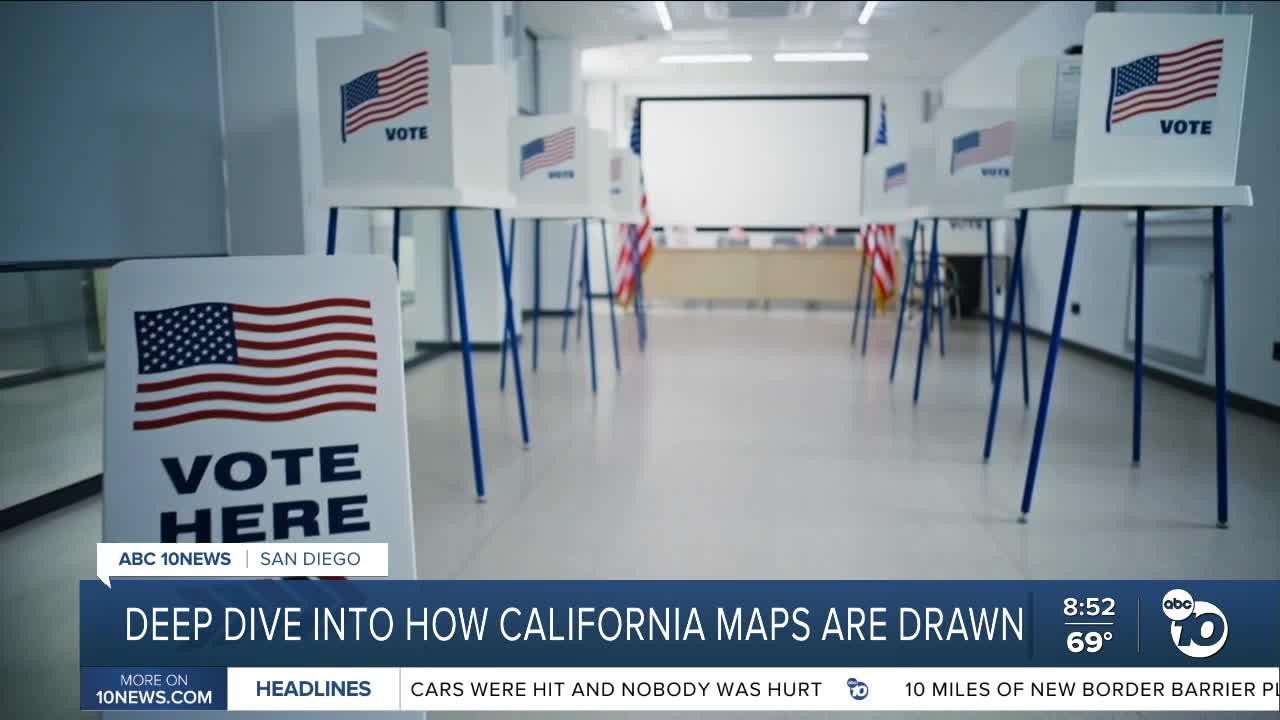SAN DIEGO (KGTV) — Voters will soon weigh in on whether to temporarily redraw California's congressional maps, as the special election for Proposition 50 is coming up on Nov. 4.
WATCH: California Citizens Redistricting Commission Chair Neal Fornaciari outlines the criteria the commission considers while giving you a peek behind the intricate process
ABC 10News spoke with the current chair of the California Citizens Redistricting Commission for a wide-ranging interview about his experience and the map-making process.
For the last 15 years, the lines have been determined by the state's independent redistricting commission, which was established in 2008 following the passage of Proposition 11, also known as the Voters First Act. Prop 50 would amend the state constitution to allow for new, temporary maps drawn by the state legislature to be used in California's congressional elections through 2030.
This is in response to Texas' mid-decade congressional redistricting. Under Prop 50, the independent commission would return to its map-making duties in 2031.
Chair Neal Fornaciari worked as a researcher and manager at a science and tech lab that focuses on national security.
Fornaciari's deep dive into the process explains the crucial criteria the commission follows when forming the maps, how the pandemic impacted the process in 2020 and other intricacies of the commission.
He explained that a firm with expertise into map line drawing was hired to draft the map itself, based on the commission's guidance and input.
Here's the criteria Fornaciari laid out during the interview:
- Equal population
- Compliance with the Voters' Rights Act
- Contiguity (district has to be connected)
- Communities of interest (avoid breaking up cities/counties, when applicable)
- Geographically compact (don't bypass one are of population to go to another one)
- Nesting districts (ideally, have two assembly districts be in one senate district)
Beyond that list, Fornaciari also said the commission had to avoid considering the residence of an incumbent and drawing districts for the purpose of favoring or discriminating against an incumbent, political candidate or party.
"Politics is pretty much left, you know, at the door of the room that we came in," he said. "Politics didn't really enter it. It was really focusing on the six criteria, and especially on the communities of interest."
10News executive producer Eric Solomon asked the following questions during the interview:
- Walk me through when the independent commission was approved and formed. Why was it important for an independent commission to be created?
- How are the members found, and what does that process look like for them to be approved and put on the commission?
- What kind of backgrounds do the 14 members have? Are they totally diverse backgrounds from different businesses and types of work?
- Take me into some of these meetings and the conversations between all of you. There's a lot of public input that takes place. What do those conversations look like?
- Is it difficult? How challenging is it when you're following those six rules and trying to be equitable?
- Were there disagreements among the 14 of you on what areas should be represented by what?
- Are all the meeting videos made public and online, or do you have closed-door meetings along with the public ones?
- For the maps to get approved, does it need to be unanimous? Does it need to be all 14 agreeing?
- What did you find to be the biggest challenge as a member? What was harder than you thought it would be?
- How long is the process? When did it start and when did everything get approved?
- How do the terms work? Do you stay on the commission until the end of the decade? Does a new board come in?
- Can you be on it again, or is it a one-time deal?
- What has the reception been? Do people say these are very fair maps, and they're happy with what the independent commission did?
- What other work do you do from now until 2030? What does being on the commission consist of when you're not drawing maps?
- What's the budget?
- Are you guys paid at all, or is it all voluntary?
- Anything else about the process that would be beneficial for viewers to know?
You can watch the full interview in the video player at the top of the article.




